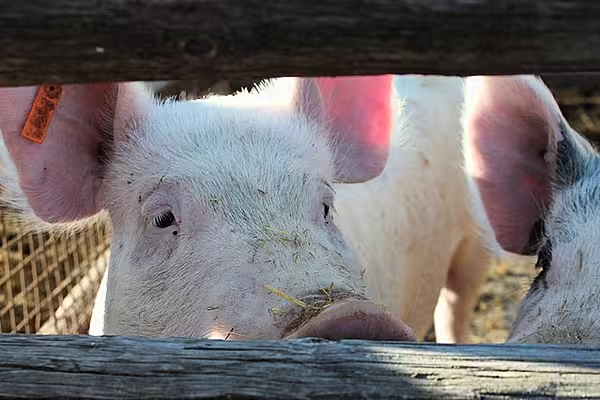Chinese consumers could face significantly higher pork prices in the medium term after Beijing slapped more import tariffs on U.S. agricultural products in its trade dispute with Washington, the OECD and FAO have said.
China said last month it would impose an extra 25 percent import duty on more than 500 U.S. goods, including soybeans, on July 6. This was in response to Washington's plan to put duties on $50 billion of Chinese goods as the trade dispute between the world's top two economies escalated.
The tit-for-tat trade threats have already disrupted trade flows across the commodities industry from sorghum to coal and inflated prices of animal feed ingredients such as soymeal.
Farming Needs
China, the world's largest pork producer and importer, relies heavily on soybean meal to feed pigs, the Organisation for Economic Cooperation and Development and the United Nations' Food and Agriculture Organisation said in their Agricultural Outlook for 2018-2027.
"Over the medium term, higher tariffs and hence higher costs for soybeans and feed grains would raise the costs of production for China's pigmeat industry," they said.
"This, combined with the higher tariffs and hence higher prices for imported pork, could lead to noticeable increases in domestic pork prices."
But the U.S./China dispute's long-term market effects should be modest as China can potentially source its farm products from other countries while the United States has the potential to supply other markets, the OECD and FAO said.
Pork Prices
Beijing implemented a 25 percent duty on most U.S. pork items on April 2 in response to U.S. tariffs on Chinese steel and aluminium products and in June also included pork in the second round of tariffs to be imposed on July 6.
The OECD and FAO said China could decide to source its pork needs from alternative suppliers such as the European Union, Canada and Brazil, echoing U.S. pork producers' fears.
In 2017, China produced more than 53 million tonnes of pork, about 45 percent of global production, and imported an estimated 1.6 million tonnes, the OECD and FAO said.
In the same year, China imported an estimated 96 million tonnes of soybeans, accounting for 64 percent of global soybean imports, while it produced around 13 million tonnes.
News by Reuters, edited by ESM. Click subscribe to sign up to ESM: European Supermarket Magazine.














